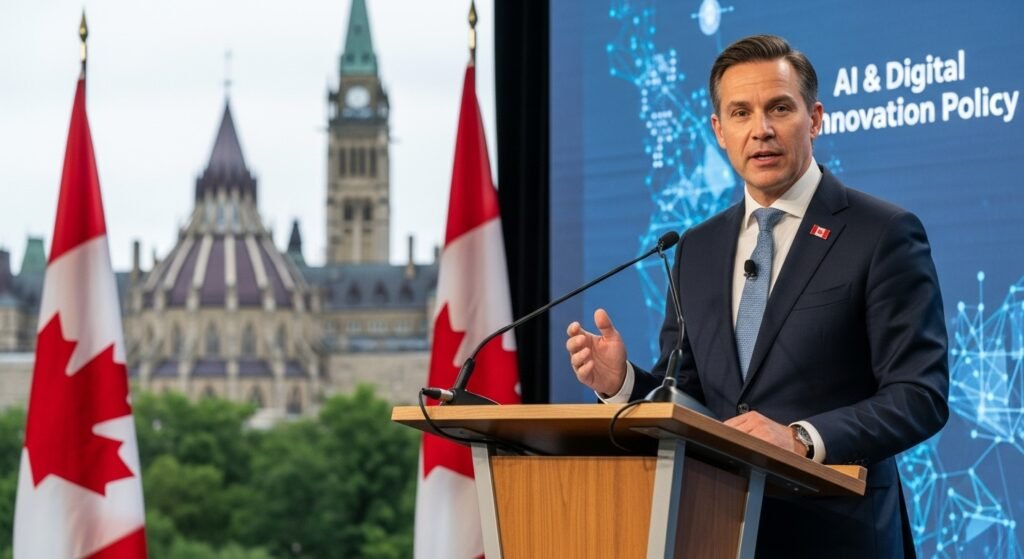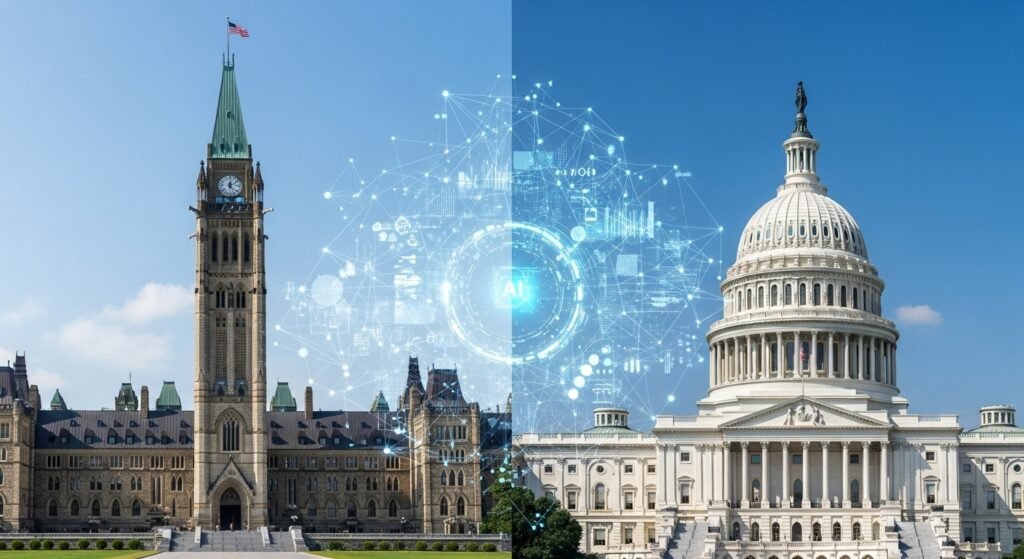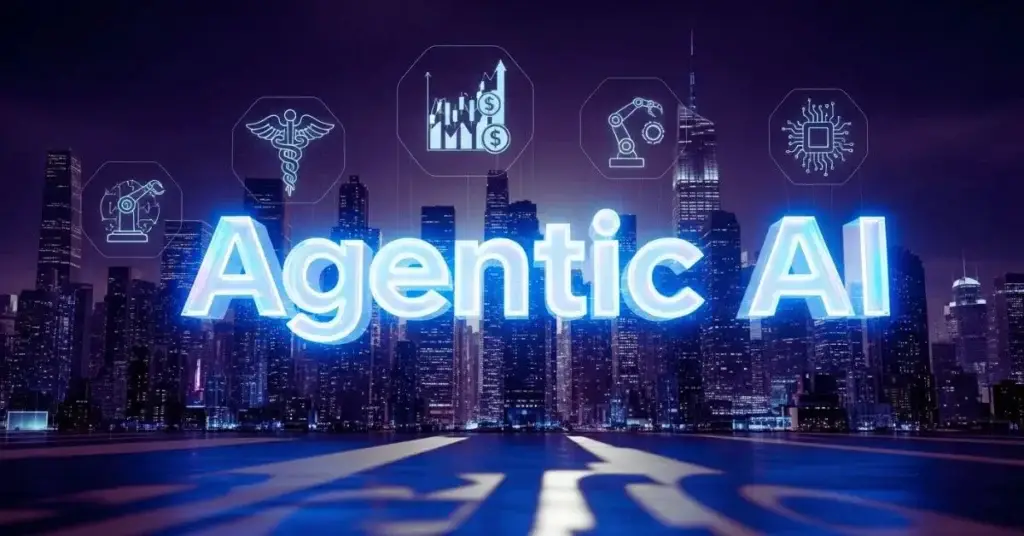
In a historic move signaling Canada’s commitment to AI, Prime Minister Mark Carney appointed Evan Solomon as the nation’s first-ever Minister of Artificial Intelligence and Digital Innovation on May 13, 2025. This unprecedented appointment underscores Canada’s ambition to lead AI development while balancing innovation with ethical considerations.
Evan Solomon: A New Era in AI Governance
Evan Solomon, a former journalist and broadcaster, now oversees AI policy, promotes adoption across industries, and ensures a balance between innovation and privacy. His appointment marks a significant shift in Canada’s approach to AI governance, emphasizing the need for strategic leadership at the highest levels of government.
Canada’s AI Strategy: Innovation with Responsibility

Solomon’s vision for Canada’s AI future revolves around four key pillars:
- Scaling Up Canadian AI Champions: Supporting homegrown AI companies to compete globally.
- Broad AI Adoption: Encouraging AI integration across small and medium-sized enterprises (SMEs) and the public sector.
- Trust and Data Sovereignty: Ensuring AI systems are transparent, accountable, and respect user privacy.
- Digital Sovereignty: Building infrastructure to maintain control over Canada’s digital future.
These priorities reflect a balanced approach, fostering innovation while safeguarding ethical standards.
Strategic Partnerships: Strengthening Canada’s AI Ecosystem
A notable development in Canada’s AI landscape is the partnership with Cohere Inc., a leading AI company. On August 19, 2025, Canada signed a Memorandum of Understanding (MOU) with Cohere to transform the public sector with sovereign AI. This collaboration aims to enhance AI capabilities within government operations, ensuring Canada remains at the forefront of AI innovation.
AI Regulation in Canada: Progress and Challenges
As of May 2025, Canada has been working on the Artificial Intelligence and Data Act (AIDA), a federal framework to regulate AI applications. However, the act has not yet been approved. The delay in passing AIDA has led to potential fragmentation in AI regulation, with provincial governments like Ontario and Quebec beginning to implement their own AI development and use requirements. This situation underscores the need for a cohesive national strategy to regulate AI effectively.
The U.S. AI Landscape: A Comparative Overview

While Canada is taking measures towards AI regulation, the United States is adopting a more deregulated approach. The Trump administration’s “Winning the AI Race: America’s AI Action Plan,” unveiled on July 23, 2025, aims to accelerate innovation by removing federal oversight. However, critics argue that this deregulation could lead to ethical concerns, including increased corporate surveillance and environmental degradation.
A recent article in the San Francisco Chronicle warns of the dangers posed by the administration’s approach, suggesting that the plan prioritizes short-term profit over ethical and sustainable development. Similarly, a report in the Financial Times highlights concerns about “AI colonialism,” where the U.S. seeks technological dominance at the expense of global partners.
Ethical Considerations: A Shared Concern
Both Canada and the U.S. face ethical challenges in AI development. In Canada, the focus is on ensuring that AI systems are transparent and accountable. The partnership with Cohere Inc. aims to address these concerns by implementing sovereign AI solutions within government operations.
In the U.S., ethical issues have been highlighted by recent controversies involving AI chatbots. A bipartisan group of U.S. senators criticized Meta CEO Mark Zuckerberg after revelations that the company’s AI chatbots were allowed to engage children in inappropriate conversations. This incident underscores the need for robust ethical guidelines in AI development and deployment.
The Role of Higher Education in AI Ethics
Institutions like Yale’s Digital Ethics Center are playing a crucial role in guiding AI regulation. The center assists state legislators in crafting AI regulations that promote technological innovation while addressing potential risks. This collaborative approach ensures that AI development aligns with ethical standards and public interests.
Looking Ahead: Canada’s Path to AI Leadership
Canada’s approach to AI governance, characterized by strategic leadership, ethical considerations, and international collaboration, positions the country as a potential global leader in AI. Canada aims to create an AI ecosystem that benefits all Canadians by focusing on responsible innovation and building strong partnerships.
Conclusion
Evan Solomon’s appointment as Canada’s first Minister of Artificial Intelligence and Digital Innovation marks a significant step towards a future where AI is developed and deployed responsibly. As Canada navigates the complexities of AI regulation and innovation, the nation’s commitment to ethical standards and strategic leadership will be crucial in shaping the global AI landscape.
Further Reading – U.S. AI Market Update
While Canada is moving forward with its bold AI strategy under Evan Solomon, the U.S. market faces challenges. Recently, investor sentiment has been shaken as warnings of a potential AI bubble emerged. The Nasdaq saw a notable slide, and SoftBank made headlines with a massive $2 billion bet on Intel’s AI ambitions.
You can read the full story here: U.S. Market Sentiment Shaken: AI Bubble Warnings, Nasdaq Slides, and SoftBank’s $2 Billion Intel Bet
FAQs: Canada’s First AI Minister and National AI Strategy
1. Who is Evan Solomon, Canada’s first AI Minister?
Answer: Evan Solomon, a well-known Canadian journalist and broadcaster, was appointed the country’s first-ever Minister of Artificial Intelligence and Digital Innovation in May 2025. As the Evan Solomon AI Minister, he is now responsible for shaping Canada’s AI leadership, driving innovation, and building strong national AI policies.
2. Why did the Canadian government create a new AI ministerial role?
Answer: The Canadian government established this portfolio to ensure the country remains competitive in Artificial Intelligence development, regulation, and adoption alongside the USA and other global leaders. This move is part of a broader Canadian AI strategy that positions the nation as an international player in AI policy in Canada and digital innovation.
3. What does the Minister of AI and Digital Innovation in Canada do?
Answer: The Minister of AI Canada is tasked with designing a forward-looking Canada AI policy, ensuring ethical AI practices, accelerating adoption in small and medium enterprises (SMEs), and strengthening digital infrastructure. This role also bridges collaboration between the government and the tech industry to foster digital innovation in Canada.
4. What are the four pillars of Canada’s AI strategy under Evan Solomon?
Answer: Evan Solomon’s AI vision for Canada is based on four key pillars:
- Scaling Canadian AI champions
- Accelerating AI adoption across SMEs and the public sector
- Ensuring trust, data privacy, and transparency
- Building digital sovereignty and a local AI infrastructure
These elements define the Canada AI strategy and position the nation as a leader in Canadian AI innovation.
5. What AI partnerships has Canada announced recently?
Answer: In August 2025, the Canadian government announced a major Canada AI partnership with Cohere AI. This collaboration aims to introduce advanced AI solutions into public services and strengthen a sovereign AI ecosystem. Such initiatives highlight the government’s commitment to AI innovation in Canada.
6. How will Canada regulate Artificial Intelligence?
Answer: Minister Evan Solomon’s AI policy emphasizes a regulatory approach described as “light, tight, right.” This ensures AI innovation continues to thrive while maintaining public trust and accountability. Canada is also reviewing the Artificial Intelligence and Data Act (AIDA) as part of its AI governance strategy.
7. What are the biggest challenges in AI adoption in Canada?
Answer: While Canada leads in AI research, the adoption rate in businesses is slower. Many Canadian companies struggle with ROI concerns, infrastructure readiness, and a lack of policy clarity. Addressing these Canada AI adoption challenges is among Evan Solomon’s top priorities to close the “imagination gap” and shape the future of AI in Canadian businesses.
8. How is Canada ensuring ethical and responsible AI?
Answer: The Canadian government has intensely focused on ethical AI frameworks, transparency, and democratic oversight. By promoting responsible AI systems, Canada aims to build public trust while positioning itself as a model for ethical AI governance on the global stage.


